Overview Of Capital Gains Tax In New York
Owning a home in New York can be a rewarding experience, but it also comes with some significant tax obligations. Homeowners in the state must pay capital gains tax when they sell their houses.
Capital gains are profits that a homeowner makes when they sell their property for more than what they paid for it. In New York, capital gains taxes are based on the amount of profit made from the sale and the homeowner’s income bracket.
For homeowners who make a large enough profit on the sale of their home, they may be required to pay federal capital gains tax as well as state taxes. The rate of taxation varies depending on how long one has owned the property and if any improvements have been made to it.
Knowing these details is essential for any homeowner selling their house in New York as it will help them plan ahead and ensure that all necessary taxes are paid in full.
Understanding Property Tax Rates In New York
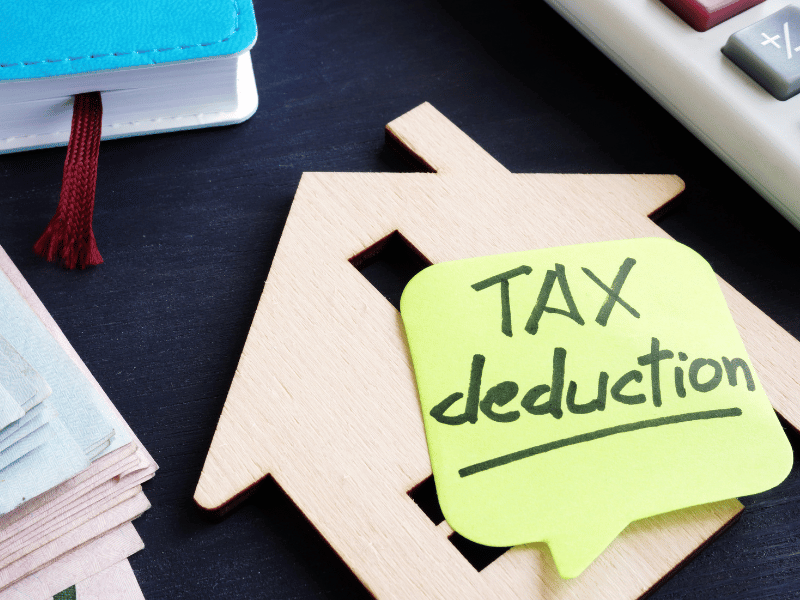
Owning a home in New York comes with many advantages, but it also means having to understand and pay taxes. Property taxes can be one of the most confusing elements of homeownership, especially for those who are new to the area or unfamiliar with the process. While there are many different types of taxes that may apply when selling a house in New York, property tax rates are often the most important. The rate varies based on where you live and can range from as low as
58% all the way up to
53%. Knowing these details before purchasing a home can help you plan ahead and budget accordingly so you’re not surprised by the cost of your taxes comes time to file them. Understanding what affects your property tax rate and how they are calculated is an essential part of being a responsible homeowner in New York, both now and in the future.
The Difference Between Short-term And Long-term Capital Gains Tax Rates In New York
When selling a house in New York, homeowners must consider two types of capital gains taxes: short-term and long-term. Short-term capital gains are taxed as ordinary income, with tax rates ranging from 4% to
82%, depending on the individual’s filing status and income level. Long-term capital gains are taxed at lower rates than short-term gains and range from 0% to
82%. To qualify for the lower rate, the property must have been owned for more than one year. Additionally, if the home was used as a primary residence for at least two of the five years prior to its sale, up to $250,000 of profit can be excluded from taxation for single filers or $500,000 for joint filers. Homeowners should be aware that these exemption amounts cannot exceed their total taxable gain on the sale of their homes, and it is important to calculate all applicable taxes before deciding whether or not to sell a house in New York.
Nonresident Capital Gains Tax Rate For Selling A Home In New York

The non-resident capital gains tax rate for selling a home in New York is an important part of the comprehensive guide to homeownership taxes. The New York State Tax Department imposes a nonresident capital gains tax rate on the sale of real estate located within the state. Generally, the rate is equal to
8% of the total gain on the sale of a home or other real estate property located in New York. However, there are exemptions and deductions that can be applied to reduce this amount. For instance, if you have owned and lived in your home for more than two years before selling it, a portion of your gain may be exempt from taxation depending on the date of sale and other factors, such as improvements made during ownership. Additionally, those who are eligible for certain credits may also reduce their liability for this tax. It is important to understand all aspects of taxation when selling a home in New York and seek advice from qualified professionals to ensure compliance with applicable laws.
Calculating The Capital Gains Tax On A Home Sale In New York
When selling a home in New York, homeowners must consider the capital gains tax. The total amount of the capital gains tax depends on how long the homeowner has owned and lived in the home, as well as their filing status.
Home sellers who have held their home for longer than one year are eligible to receive favorable tax rates on their capital gains. However, if they have held it for less than one year, they will be subject to higher taxes.
Additionally, there may be other taxes and fees that need to be taken into account when calculating the total amount owed, including transfer taxes, recording fees, and miscellaneous closing costs. It is important to note that these costs can vary from county to county and city to city.
Knowing exactly what taxes apply in each area can help homeowners accurately calculate their total tax expenses before listing their property so they can make informed decisions about when to sell and how much money they need to set aside for any applicable taxes.
Strategies To Avoid Paying Capital Gains Taxes When Selling A House In New York
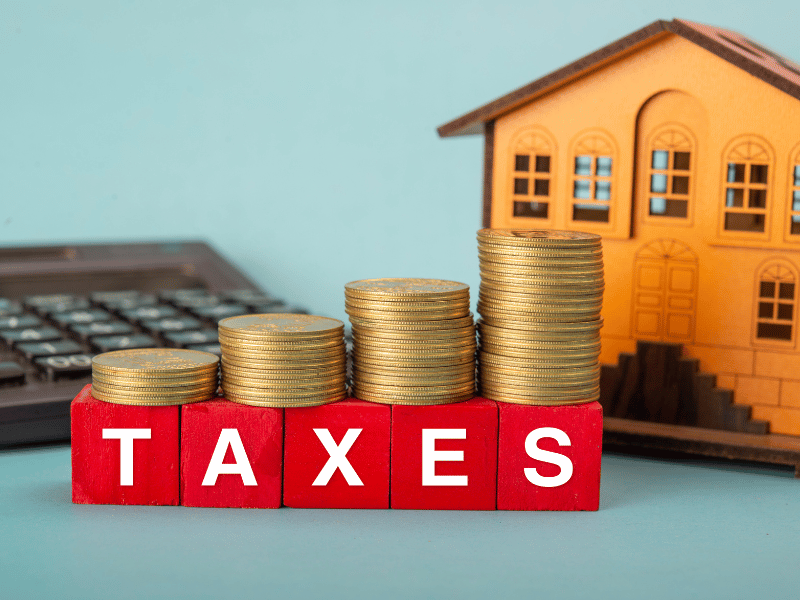
When selling a house in New York, homeowners are subject to capital gains taxes on any profits they make from the sale. However, there are certain strategies that can help them avoid paying this tax.
One of the most common ones is to use their primary residence exclusion, which allows homeowners to exclude up to $250,000 (or $500,000 for married couples filing jointly) of any gain they make from the sale of their home. Additionally, if someone has lived in the house for at least two out of five years prior to selling it, they may qualify for an additional exclusion if certain other requirements are met.
Other strategies include using section 1031 exchanges or gift transfers to transfer ownership of the property without incurring capital gains taxes. Finally, homeowners may also be able to offset any capital gains taxes due by claiming deductions and credits related to their homeowner status.
Reporting Requirements For Home Sales And Capital Gains Taxes In New York
When selling a house in New York, homeowners must report the sale to the Internal Revenue Service (IRS). Depending on the amount of gain from the sale, capital gains taxes may be due.
To determine if they are liable for capital gains taxes, homeowners must figure out their cost basis in the home. This can include any improvements or costs associated with purchasing the home.
Homeowners also need to know any deductions that apply and whether they qualify for any exemptions. Additionally, those who sell a home within two years of purchase may have to pay recapture taxes.
To help navigate through all of these requirements, it is important for homeowners to consult with a qualified tax professional or accountant who can give personalized advice based on individual circumstances.
Special Considerations For Selling An Inherited Home In New York
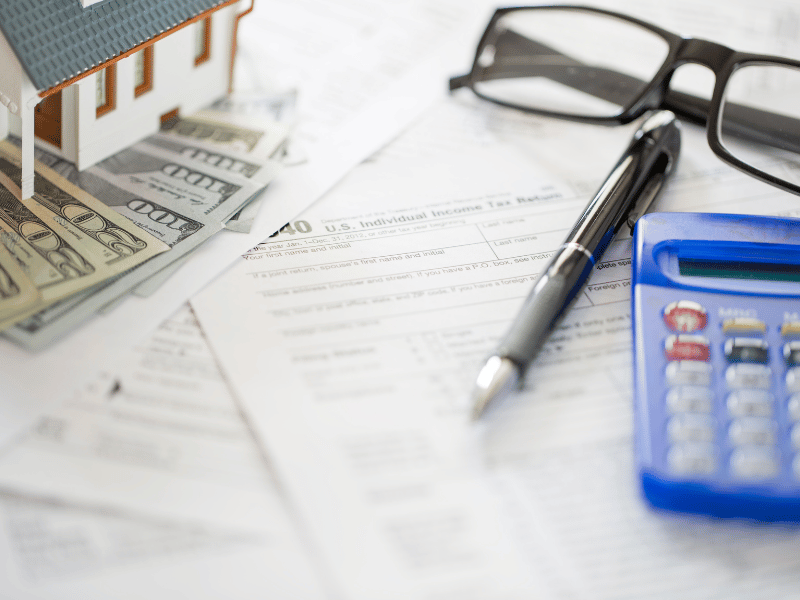
When selling an inherited home in New York, it’s important to be aware of any additional taxes or fees that may apply. Inherited homes are subject to probate tax and state estate tax, both of which must be paid before the sale can be completed.
Inherited homes may also incur capital gains taxes if the fair market value of the home has increased since it was purchased. It is important to consult with a qualified tax professional to calculate any potential taxes due before finalizing a sale.
Additionally, many counties in New York have their own transfer taxes that need to be taken into account when selling an inherited home. Finally, homeowners should check with their local municipality for any additional taxes that could apply when selling an inherited home in New York.
Impact Of The Star Program On Taxes When Selling A House In New York
The STAR (School Tax Relief) program in New York is an important factor to consider when selling a house in the state. The STAR program offers a tax reduction on primary residences for eligible homeowners.
The amount of savings offered to these homeowners depends on the school district they are located in, as well as their household income. The benefit can be up to $2,000 per year and can have a significant impact on taxes owed when selling a home in New York.
It is important for potential buyers or sellers of homes in New York to be aware of the STAR program and what potential benefits it may offer them. Furthermore, those that already own a home in the state should look into whether they qualify for the STAR program and take advantage of any potential savings it may bring.
Comparing Capital Gains Rates Between Different States
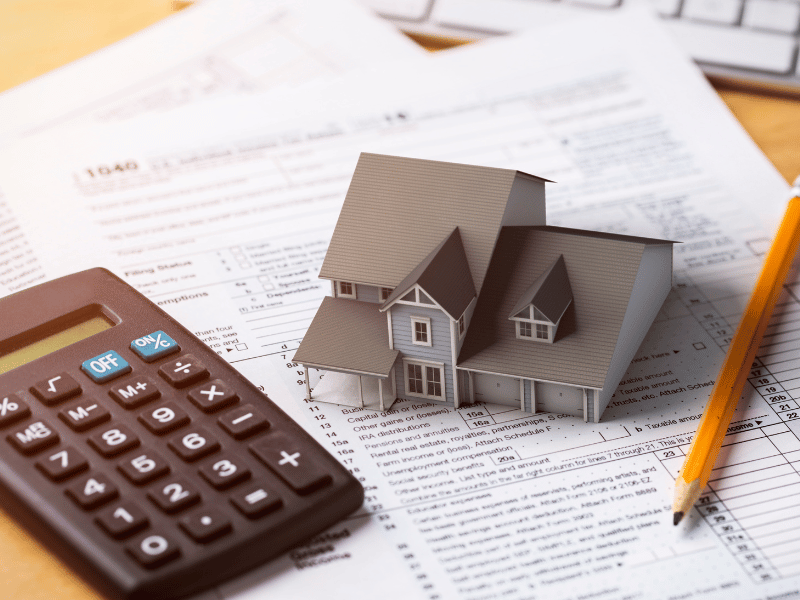
In the United States, capital gains taxes vary from state to state. For example, in New York, when selling a house, homeowners can expect to pay taxes on the profit they make.
The amount of tax depends on several factors, such as the sale price and how long the homeowner has owned the property. To help homeowners understand their potential tax obligations regarding selling a house in New York, it’s important to compare capital gains rates between different states.
It’s also important to consider other types of taxes that may apply during a home sale, such as real estate transfer tax and sales tax. Understanding these taxes and their implications is essential for making an informed decision regarding homeownership taxes in New York.
Advantages And Disadvantages Of Investing In Real Estate In New York
The advantages of investing in real estate in New York can be numerous, but it is important to understand the taxes associated with selling a house. When it comes to homeownership taxes, New York has some of the highest rates in the country.
While these taxes can add up quickly, there are also benefits to investing in real estate in New York. The state offers tax deductions for mortgage interest and property taxes, as well as credits for certain improvements and energy-efficient upgrades.
Additionally, homeowners may be able to take advantage of increasing home values over time which could result in higher equity growth and larger profits when they do decide to sell. However, those looking to invest in real estate must also consider potential drawbacks before making a purchase.
Homeowners must pay closing costs which include attorney fees, appraiser fees, preparation charges, transfer tax, and other miscellaneous fees. Furthermore, those who are considering renting out their home should familiarize themselves with local rental laws and regulations before they make an investment.
Common Questions About Taxes When Selling A House In New York
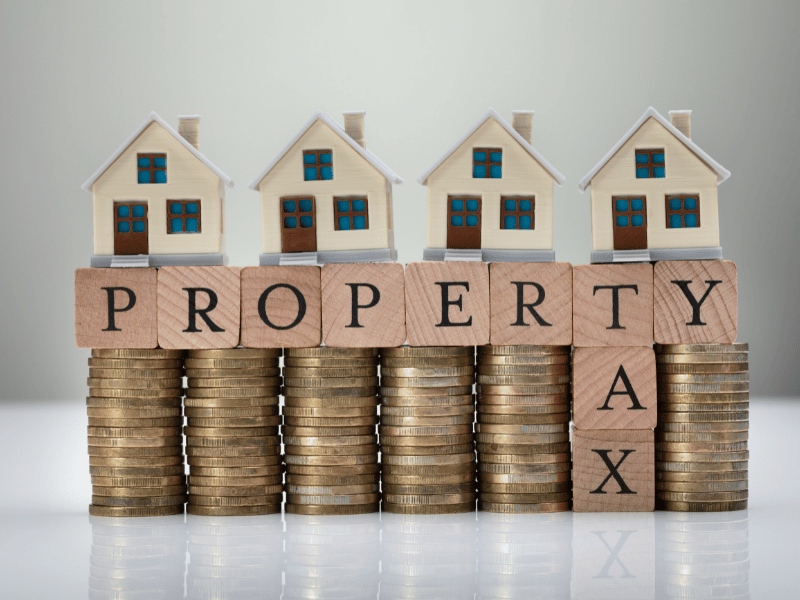
When it comes to selling a house in New York, there are often many questions that homeowners have regarding taxes. How much tax will I owe? Are there any exemptions or credits that can be used to lower the amount of taxes due? How is capital gains tax calculated when selling a primary residence in New York? These are all important questions to consider when preparing to sell a home in New York.
Homeowners should also consider what closing costs need to be paid and how those will affect the total amount of taxes owed. It is also important for homeowners to understand the basics of the estate tax, inheritance tax, and transfer taxes, as each of these could potentially impact the overall cost of selling a house in New York.
Understanding these various taxes can help ensure that homeowners are prepared when it comes time to sell their homes in New York and can help minimize the amount of money spent on taxes during this process.
Tips For Minimizing Your Tax Liability When Selling A House In New York
Selling a house in New York can be a stressful endeavor, especially when it comes to taxes. While the amount of taxes you will owe depends on several factors, there are steps you can take to minimize your tax liability.
One way is to determine whether you qualify for any exemptions. Depending on the circumstances, homeowners may be eligible for up to $250,000 in exemption per person.
Additionally, any capital gains made from selling a house may be offset by losses incurred from other investments. It’s important to properly document and track any losses throughout the year and use them as deductions against your taxable income when filing taxes.
Furthermore, if you decide to reinvest your profits into another home or property within two years of selling your current home, you may qualify for a 1031 exchange which allows you to defer capital gains taxes until the new investment is sold. Finally, many states offer additional credits or deductions that may help reduce your tax bill when selling a house in New York.
It’s important to research all available options and consult with an expert before making any decisions about how best to minimize your tax liability when selling a house in New York.
Exploring Options With An Experienced Financial Advisor Before Selling A House In New York

If you’re considering selling your house in New York, it’s important to explore all the options available to you and understand the taxes associated with home ownership. Consulting with an experienced financial advisor can help you determine what will be required of you financially when selling a house in New York.
They can provide insight into what potential buyers need to know, such as the capital gains tax or other state and local taxes that may come into play. A financial professional can also explain exemptions that may apply to your sale, including those for primary residences or inherited homes.
Understanding these tax implications before selling is essential in making sure you get the most out of your home sale without any unexpected surprises.
What To Do If You Receive An Irs Notice Regarding Your Home Sale And Its Related Taxes
Selling a house in New York carries tax implications, and many homeowners are unaware of the taxes that they may owe. If you receive an IRS notice regarding your home sale and its related taxes, it is important to take action quickly.
It is beneficial to consult with a professional tax advisor or trusted accountant to understand your responsibilities as a homeowner and to ensure that you comply with the applicable rules and regulations. The Internal Revenue Service (IRS) provides resources such as the 1099-S form for filing capital gains taxes on the sale of a home, which should be completed and filed properly within 30 days of receiving it.
Additionally, there may be additional taxes imposed by New York State or local government authorities, so it is important to research these thoroughly. Finally, if you do not have the funds available to pay the taxes due on your home sale transaction, you can apply for an extension or installment agreement with the IRS in order to spread out your payments over a period of time.
Understanding your obligations when selling a house in New York can help make sure that you remain compliant with all applicable laws and regulations.
How To Appeal If You Disagree With The Amount Of Money Owed For Taxes On A Home Sale In New York
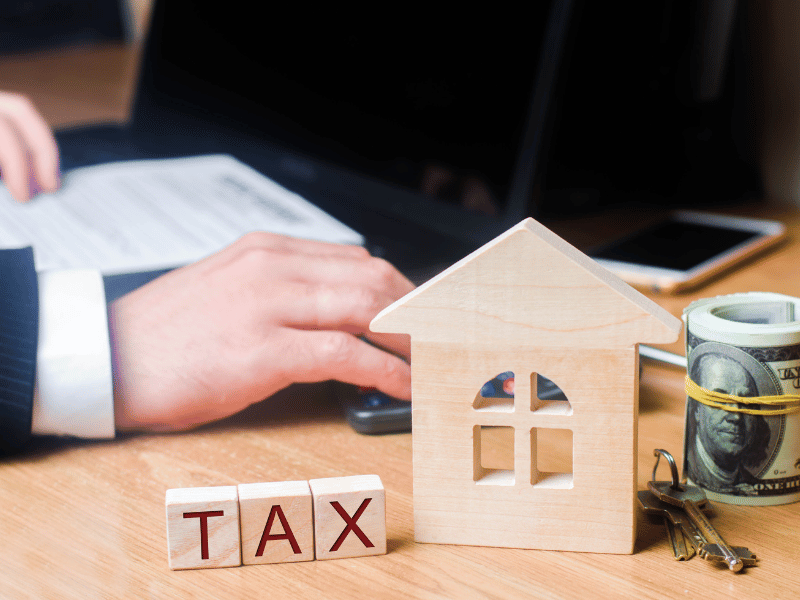
If you disagree with the amount of taxes you owe for selling a home in New York, there are steps you can take to appeal. The process begins with understanding the specific taxes associated with homeownership in the state.
It is important to understand that all counties and cities have their own set of rules pertaining to taxation. You must be aware of these rules before filing an appeal.
Generally, there are three main types of taxes when selling a home in New York: real estate transfer tax, mortgage recording tax, and local income tax withholding. Depending on the location of your property, additional taxes may apply.
After determining which taxes apply to your situation, it is advised that you review them carefully and make sure everything matches up with what was filed during the sale. If there are discrepancies or errors made by either party, you can then file a formal dispute with the relevant county or city office responsible for collecting the taxes.
This will require submitting evidence or proof related to your dispute and communicating any related information that would support your case. Once all documentation is received, a decision will be made regarding whether or not an adjustment should be made to the amount owed for taxes on a home sale in New York.
What To Do If You Are Unavailable To File Your Taxes By The Deadline After A Home Sale In Ny
If you are unable to file your taxes by the deadline after selling a home in New York, there are steps you can take to ensure that you remain compliant with local laws. First, contact the NY Department of Taxation and Finance as soon as possible so they can provide assistance and determine if an extension is available.
It’s important to note that any taxes due must be paid by the original due date, even if an extension has been requested. You can also pay estimated taxes on any income earned from the sale of your home, which will help avoid penalties for underpayment of estimated taxes.
To properly calculate these estimated taxes, it’s necessary to understand how much capital gain was realized in the sale and what deductions are available. Lastly, be sure to keep all paperwork related to the sale of your home, including closing documents, statements, and bills, in order to prepare accurate tax returns.
Reasons Why It Is Important To Be Aware Of Changes To Property Tax Laws And Regulations In Ny State
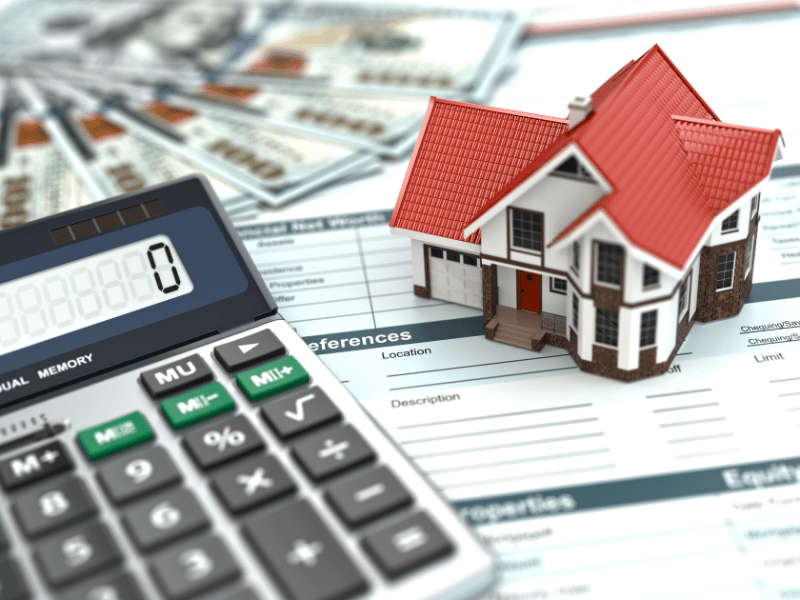
It is important for homeowners to be aware of changes to property tax laws and regulations in New York State. Tax rates are determined by local governments, so it is important that you stay up-to-date with the current tax rate for your area.
In addition, understanding the different types of taxes associated with owning property can help you better plan for the future. Property taxes, transfer taxes, and capital gains taxes all have an impact on your bottom line when selling a home in New York State.
Knowing how these taxes are calculated can help you make informed decisions when it comes to selling your home. Being knowledgeable about the various tax implications of selling a house can save you money in the long run and ensure that you don’t owe any unexpected fees or penalties.
Resources For Finding Additional Information About Property Tax Codes And Rules In Ny State 20. Updates On Changes To The Current Laws And Regulations Surrounding Property Taxes In Ny State
If you’re looking for additional information about property tax codes and rules in New York State, there are several reliable resources that can help answer your questions. The NYS Department of Taxation and Finance website provides comprehensive information on all aspects of taxation, including property taxes and exemptions.
Additionally, the NYS Department of State’s Office of Real Property Tax Services offers a wealth of information on local property tax laws and regulations. For updates on changes to the current laws and regulations surrounding property taxes in NY State, it is important to stay informed through online resources, such as the NYS Office of Real Property Tax Services newsletter or their Twitter account.
As well as these official sources, local newspapers often cover news related to changes in property tax rules in New York State. Keep an eye out for any announcements from your county government or city council that may affect your taxes when selling a house in New York.
Extra Resources To Help New York Sellers
| Closing Costs When Selling A House In New York | Taxes When Selling A House In New York |
| When Is It Too Late To Stop Foreclosure In NY | Selling A House With Mold In New York |
| Squatters Rights In New York | Selling A House With Fire Damage |
| Selling A House With Code Violations | Sell A House In Probate New York |
| Sell A House During Divorce New York | Can You Sell A House In Foreclosure New York |
| Selling A House When Relocating | Selling Inherited Property In NY |
| Sell Commercial Property In New York | Sell Land In New York |
| How To Do A Quitclaim Deed In New York | Tenant Damage To Property In [New York |
Related Posts:
Sell A House During Divorce In New York
Who Pays Closing Costs In New York
Sell A House In Probate In New York
